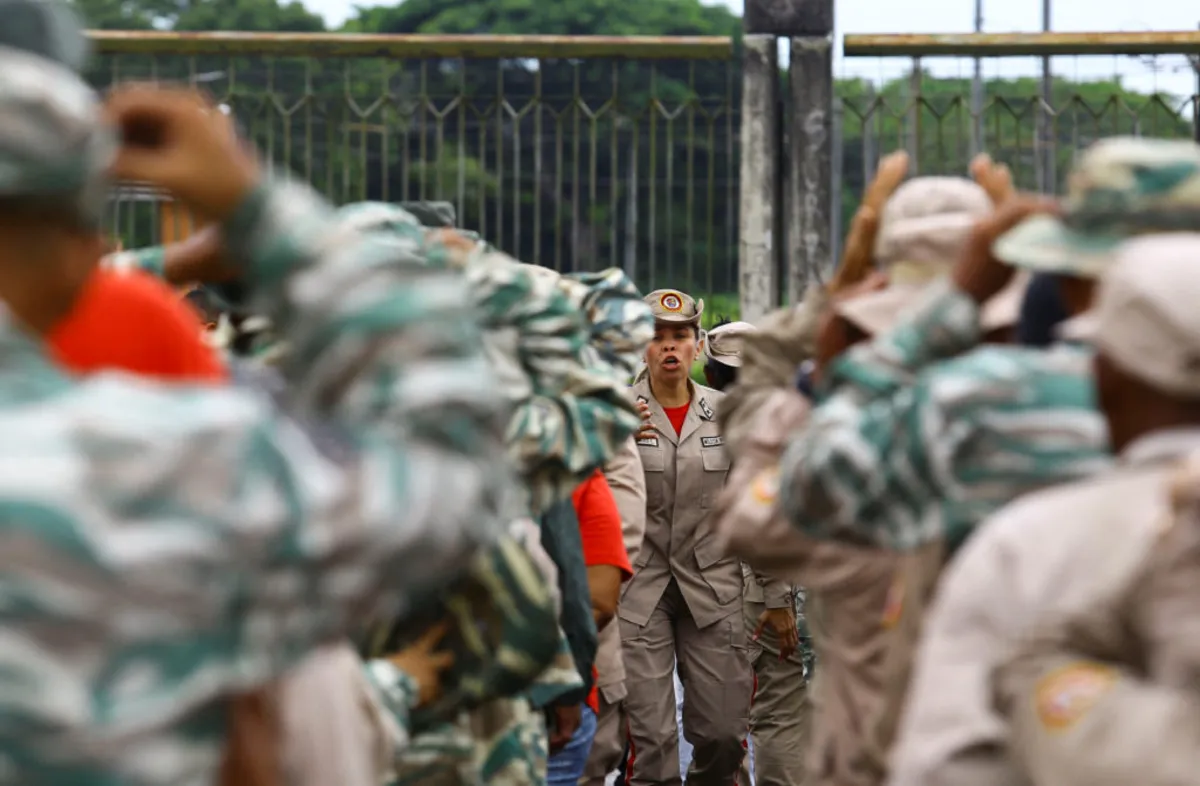
CARACAS, Venezuela (AP) — In a significant escalation of rhetoric, President Nicolás Maduro has pledged to defend Venezuela’s sovereignty amidst rising tensions resulting from the recent deployment of U.S. warships in the Caribbean. During a speech delivered late Friday, Maduro called on President Donald Trump to engage in constructive dialogue to prevent any potential conflict.
These remarks came just three days after the Trump administration announced that U.S. forces executed a military strike in the Caribbean, leading to the sinking of a vessel purportedly linked to the Venezuelan gang Tren de Aragua, which is alleged to be involved in drug trafficking to the United States. This strike resulted in the deaths of 11 individuals, a claim that has been met with skepticism by the Venezuelan government.
In his address, Maduro stated, “Venezuela is always ready for dialogue, but we demand respect.” He emphasized that “None of our differences justify a high-impact military conflict in South America.” The situation has sparked concern across Latin America, a region that has historically dealt with the repercussions of previous American military interventions.
Donning military camouflage, Maduro presided over a ceremony where he announced the mobilization of civilian militias, declaring that any attack would trigger an “armed struggle.” The U.S. has reportedly deployed more than 4,000 troops and naval assets to the region, asserting that this military buildup is aimed at combating Latin American drug cartels.
While U.S. officials have not indicated plans for a ground invasion into Venezuela, Maduro has condemned the troop deployment as a veiled threat of invasion. He further accused the United States of fabricating drug-trafficking allegations as a pretext for regime change. This accusation follows Washington's recent decision to double the reward for Maduro’s capture to $50 million.
The looming threat of American intervention has been a strategic tool for Maduro, one that he has leveraged to galvanize support within Venezuela, especially as his domestic political backing has been waning. As tensions escalate, the call for dialogue remains a crucial element in addressing the ongoing crisis, but the specter of military conflict continues to cast a long shadow over the region.